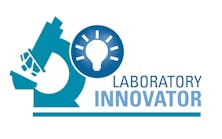Sally A. Huston, PhD, an assistant professor at the University of Georgia College of Pharmacy, has written that “there have been biomedical ethical controversies since the time of Hippocrates, if not earlier.”1 Certainly, while the term “bioethics”—meaning the study of the ethical and moral implications of discoveries and advances in biology and medicine—is relatively new, bioethical controversies are not.
One of the most pressing issues in bioethics today concerns “incidental findings” of genomic testing designed to determine whether a particular drug will be effective for a patient. If the same genetic variation that tells whether drug A will work has also been associated with an increased risk that the person who carries it will eventually develop disease B, what should the clinician do with that information? Does the clinician have a responsibility to share the information with the patient? To not share the information with the patient? Does it depend on whether the patient has given informed consent? How should informed consent be defined in such cases? Is it practical for all patients to receive a short course in pharmacogenomics so they understand what they are consenting to? To receive effective counseling after they are given the information? The problems are obvious; the solutions are not.
And they go beyond whether and what information to share with a patient. For example, could information fall into other hands, to the patient’s disadvantage? There are federal laws—the Health Insurance Portability and Accountability Act (HIPAA), the Genetic Information Non-discrimination Act (GINA)—designed to prevent ancillary information from being misused by insurers. HIPAA says that a patient’s genetic information cannot be used as evidence of a pre-existing condition. GINA prohibits insurance providers from basing decisions about coverage or premiums on genetic information. GINA also prohibits employment discrimination on the basis of genetic data. But no law prohibits employers from getting access to such information from benefit records. And even if the available information is somehow restricted to drug efficacy, a knowledgeable reader can infer the corresponding disease-risk link.
Focusing on the doctor-patient relationship, the American College of Medical Genetics and Genomics (ACMG) in March 2013 issued recommendations on the reporting of incidental findings. The ACMG recommends that anyone who is undergoing genome sequencing should be tested for a list of clinically actionable conditions, including predispositions to cancer and cardiomyopathy (though not Alzheimer’s disease). It asserts that “constitutional mutations found in the genes [on the list] should be reported by the laboratory, regardless of the indication for which the clinical sequencing was ordered.” It also asserts that physicians have a duty to pass the information on to patients. You can read the recommendations at http://www.acmg.net/docs/ACMG_Releases_Highly-Anticipated_Recommendations_on_Incidental_Findings_in_Clinical_Exome_and_Genome_Sequencing.pdf
Not everyone agrees. Writing in Trends in Biotechnology last month, Megan Allyse, PhD, and Marsha Michie, PhD, of the Stanford University Center for Biomedical Ethics assert that doctors should not have the right or responsibility to provide their patients with genomic information about their future health risks. They argue that the ACMG approach raises ethical questions, posing a threat to patient autonomy, and that it also has economic ramifications: “It is unclear whether payers will cover the cost of predictive testing,” the authors say, noting that “laboratories are unlikely to bear the increased cost themselves.” (The article can be found at http://www.cell.com/trends/biotechnology/fulltext/S0167-7799(13)00092-9.)
It’s food for thought for the clinical laboratory. As the party that generates the reports, the lab will be central to the emerging debate. In Allyse and Michie’s view, if the ACMG recommendations are followed, sequencing labs will “have an obligation to seek out actively the variants as listed in the recommendations and include these findings in the clinical report.”
What do you think? MLO will be pleased to provide a forum for readers to share their experiences and opinions on this significant topic with fellow laboratorians. I look forward to hearing from you-[email protected].
Reference
- Huston SA. Ethical considerations in pharmacogenomics. In: Zdanowicz MM, ed. Concepts in Pharmacogenomics. Bethesda, MD: American Society of Health-System Pharmacists; 2010:376.






